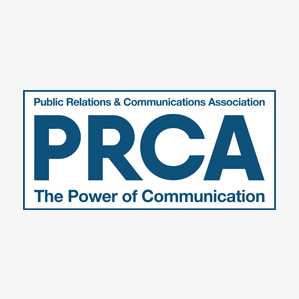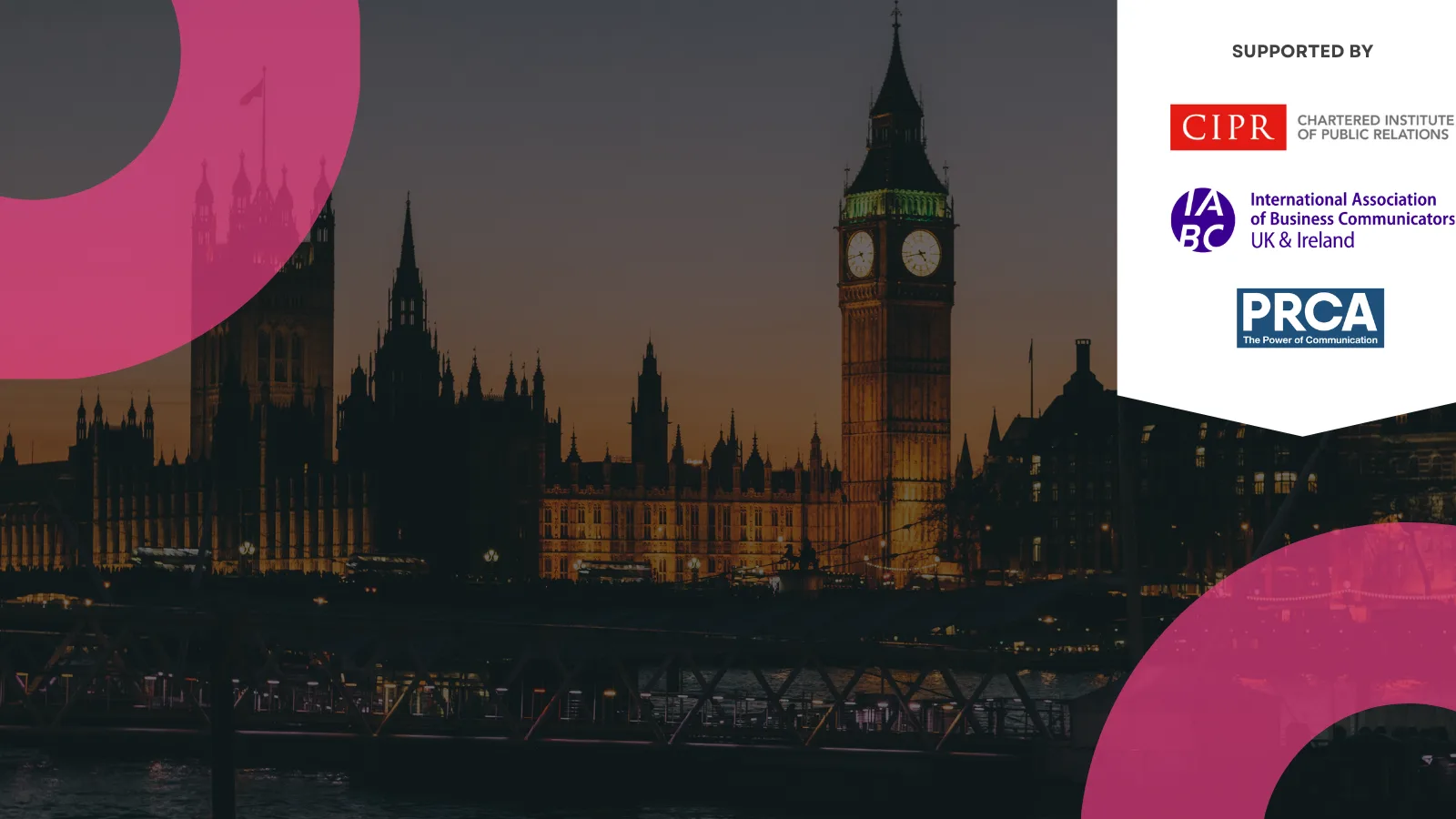

Welcome to the 23rd edition of the "Crisis Communications Boot Camp" and our first ever edition in London!
Supported by CIPR, IABC UK & Ireland and PRCA and with case studies by some of the world’s leading communications experts, attending the Boot Camp will help you rewrite your crisis plan and protect your organization's reputation in a polarized world.
Are you a member of CIPR (Chartered Institute of Public Relations), IABC UK&Ireland or PRCA? Contact us today for your exclusive, 20% discount code.
We live in an era of constant crisis. Covid-19, political and societal turmoil, fake news, cybercrime and cancel culture have completely changed the world of crisis and reputation management. As a result, we need to rethink crisis planning. To survive in this new environment, the entire concept of crisis communications needs to flip.
Why register?
Former Special Assistant to President Ronald Reagan, Former Assistant US Commerce Secretary for President George H.W. Bush, British Civil Service Commissioner
09.00 Registration and Morning Coffee
10.00 Opening Keynote: Being in Command, Avoiding Brandwagons, and Understanding Branding in Two-Thousand-And-Now is so Demanding
Reputation management and image control are becoming a PR and Branding minefield, where professionals and the organisations that they represent are increasingly being asked to take a position, on areas that previously many felt they could remain silent on. Appreciation versus appropriation, unintended alienation versus surface inclusion, intersectionality, and cancel culture among others are all raising new questions that require fresh strategies. So, what can we do? Join the keynote to find out.
Prof. Jonathan A.J. Wilson, 4xLinkedIn TopVoices Winner, Branding Professor & Speaker
10.40 Managing Reputational Risk in Unprecedented Times
Mary Jo holds the rare distinction of being appointed to office by two American Presidents, two British Prime Ministers and Her Majesty Queen Elizabeth II.
In her opening keynote, drawing from her experience at Royal Dutch Shell, BP America, Lehman Brothers, HSBC Holdings and Drexel Burnham Lambert, Mary Jo will share with you what it takes to build and maintain a global reputation in the post-COVID era, how to successfully handle corporate and financial crisis and most importantly, how to craft the perfect apology after a major crisis.
Mary Jo Jacobi, Former Assistant U.S. Commerce Secretary, Former Chief Reputation Officer at Royal Dutch Shell and Former Executive Vice President of BP America
11.20 Out of the Shadows: The Most Important Trends in Reputation that CEOs Need to Understand
Patrick was Princess Diana’s first and only Chief of Staff. He served the Princess for eight years (1988-96), responsible for every aspect of her public life, charitable initiatives, and private organization. Now, an internationally renowned reputation consultant, a Bestselling Author and consultant for Netflix’s “The Crown”, in this session Patrick will help you identify the qualities people expect to see in CEOs and senior officials, how to prepare them for major crisis, build their key messages but most importantly acquire substance, not spin.
Patrick Jephson, Former Chief of Staff to Princess Diana, New York Times Bestselling Author & Consultant, Netflix's The Crown
12.00 Lunch for Speakers and Delegates
12.40 Building a Strong Reputation in the Post-Pandemic Reality: Behind the Scenes of UK’s Government's Most Ambitious International Promotional Campaign
Delivering iconic moments to over 145 countries, the GREAT Britain and Northern Ireland campaign showcases the very best of UK's rich heritage and cutting-edge innovation. In this presentation, Patricia will give you a behind the scenes look of UK government's most ambitious international promotional campaign, uniting the efforts of the public and private sector to generate jobs and growth for Britain and Northern Ireland. Her presentation will also focus on adapting the campaign in the face of COVID-19 and the evolution of the campaign, as we emerge from COVID.
Patricia Yates, CEO, VisitBritain/VisitEngland
13.20 Understand the New Rules of Crisis Communications in a Hostile Cyber Risk Landscape
According to The Economist, if the prize resource of the 20th century was oil, the prize resource of the 21st century is data.
Information is the currency of today’s world order. Boards and business leaders have been forced to learn how to adapt to the risks that cybersecurity issues pose to their businesses.
In this presentation, Piers will dive into the current cybersecurity landscape, helping you get a handle on how attacks are evolving and how to adapt your organisation’s response to multi-layered threats from increasingly sophisticated and media-savvy hackers.
Piers Schreiber, Corporate Affairs Director, Global, BT GROUP
14.00 Being Ready to Respond to a Crisis in the New Reality
Drawing from her work at FTI Consulting, Deloitte and Regester Larkin and her experience in responding to the NotPetya cyber-attack, high profile discrimination issues and environmental activism, in this interactive session Kate will discuss how to address the components of planning, training and exercising. She will also share with you lessons learned from live responses on what to be ready for.
Kate Brader, Managing Director, FTI Consulting
14.40 Networking Break
15.20 Managing Reputation in an Era of Disinformation
Phony click-bait news sites and false stories are becoming a huge threat to the PR industry. In this interactive session, Andrew will help you understand the challenges of protecting your reputation in an age of fake news and will help you identify the steps you need to take when your company is being targeted.
Andrew Widger, Senior Director, Global Media Relations, Pfizer
16.00 The Long Tail of Crisis Management in a “Click Bait” Media World
In early 2017, Mayo Clinic media relations received a call from a prominent national reporter alleging that a brain injury patient was being held against her will by Mayo Clinic. Eighteen months later, the explosive “click bait” story was broadcast on national television and published online in three parts across one of the largest digital media platforms in the world, and forever changed the issues management and crisis communications practices at Mayo Clinic.
Prior to this situation, Mayo Clinic had a well-established – perhaps even industry-leading – issues and crisis management practice. Over time, the issues and crisis management practice had evolved from managing single isolated events, to increasingly longer-term projects, to a new norm of ongoing reputational threats that never really seem to go away. Meanwhile, incentives for news media have changed from conveying credibility and truth in order to gain the loyalty and subscriptions of their consumers, to more often chasing the “click bait” success of clicks, page views, and social media engagement. The way media is largely incentivized now has serious and permanent consequences for issues management and crisis communications for a broad spectrum of industries and organizations.
This presentation will start with a short overview of the national “medical kidnapping” case study, leading into a discussion of how the situation informed key changes in our issues management practice that are still in use today. The presentation will include details about the issues and crisis management practice at Mayo Clinic and discussion about the various trends at play in both the healthcare and media industries.
Ginger Buxa Plumbo, Communications Manager, Issues & Crisis Communications, Mayo Clinic
16.40 Communications Beyond Communications: Effective Leadership in Times of Crisis
Communications is one of several key disciplines that is tasked with the management of a crisis. In his talk, Sietse Bakker gives a unique insight into crisis management from the perspective of the person who makes the final call in managing a crisis, whether it's the Chief Executive or, in his case, the Executive Producer of the largest and most complex television show in Europe, the Eurovision Song Contest. What do you need and expect from your communications professionals? What communications skills are required beyond them? And what is the true role of communications in a crisis? After having climbed the ladder in the organization for nearly twenty years, no one, including himself, could have foreseen that it would take every bit of those twenty years of Eurovision experience to steer Europe’s favorite TV show through the biggest crisis it had ever faced in its 65-year history.
Sietse Bakker, Executive Producer, Eurovision Song Contest 2021
17.20 End of Day One
10.00-16.00 Interactive Crisis Simulation Workshop with Donald Steel: Crisis Communications in the New Reality
In this extended workshop, leading crisis communicator Donald Steel explores how crisis communications is changing in the post-pandemic world.
Combining long standing best practice with ideas on how crisis communicators can effectively support those affected by the crisis and protect the reputation of the organisation they represent.
This highly interactive workshop includes an opportunity to work with your fellow delegates through a challenging but very engaging crisis scenario, harnessing social media, media interviews and a sensitive press conference.
You will return to work with:
- Donald’s ten top post-pandemic crisis communications tips
- An action plan to improve executive readiness for crisis communications
- A heightened awareness of how to communicate in an increasingly aggressive environment
At the end of this workshop you will:
- Understand the relationship between advance preparation and speed in crisis communications
- Be equipped to review your organisation’s tone, language and style on social media in a crisis
- Be familiar with aggressive question types in crisis media interviews and how to deal with them
- Be ready to review your organisation’s crisis communications plan in the light of the workshop
10.40 Ten top post-pandemic crisis communication tips & Crisis Scenario Part One - breaking news and the use of social media
11.10 Can you be social in a crisis and the role of the dark site
11.30 Crisis scenario Part Two - handling a media interview
12.30 Lunch for Speakers and Delegates
13.30 Crisis scenario Part Two (continued) - the media interview
14.40 Crisis scenario Part Three - press conference
15.40 Discussion, summary
BT Tower LondonBT Tower
45 Maple Street, London, W1T 4BG

This program can also be delivered as a tailored in-house training for your organization. We adapt the content to your industry, objectives, and level of maturity, focusing on real challenges your teams face and the decisions they need to make. In-house formats allow your people to align on a shared approach, work through relevant scenarios, and build skills they can apply immediately.
If you’re exploring an in-house option, tell us a bit about your team, priorities, and timing, and we’ll recommend the right format.
Contact us about in-house training